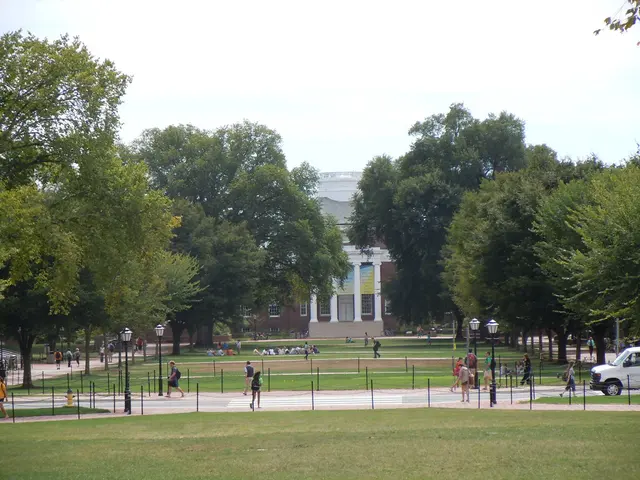bitcoin holdings of the government decrease by more than 12% in a year
Bitcoin Holdings of Governments on a Downward Spiral
CoinGecko recently revealed some intriguing findings about government Bitcoin holdings - they're diminishing! With a collective ownership of 463,741 BTC, which constitutes around 2.3% of Bitcoin's total supply, governments are shedding their digital gold at an alarming rate (a drop from 529,591 BTC in less than a year).
Are Governments Ditching Bitcoin?
Although corporations like MicroStrategy get lots of media attention for their staggering Bitcoin accumulations, governments are quietly hoarding some impressive stashes, accounting for two of the top 10 whales in the crypto world.
Diving into the details, CoinGecko found some captivating insights. For example, only five nations actively retain Bitcoin, and the US federal government is the biggest. Here's the fascinating part - the US doesn't actually purchase Bitcoin; instead, it confiscates it during criminal operations.
As President Joe Biden's tenure closes, the US has been liquidating its Bitcoin stockpile. Trump's Crypto Reserve, on the other hand, wasn't set up for buying Bitcoin, but rather to safeguard and protect the existing hoard from any future sales.
China, also a major player in government Bitcoin holdings, often stays under the radar due to its somewhat hostile stance on cryptocurrencies and unverified rumors of policy liberalization, which can significantly impact the market. China seized nearly 200,000 bitcoins in 2020 and hasn't moved them since, making this enormous reserve escape the spotlight.
The UK government follows in China's footsteps, keeping its substantial Bitcoin reserves in storage. Germany liquidated its entire Bitcoin stash last year to cover a budget deficit - a move unrelated to any anti-crypto ideology. Ukraine, too, sold its entire Bitcoin holdings to fund its ongoing war efforts.
All these government whales acquired their Bitcoin solely through criminal seizures, apart from Ukraine, which accepted cross-border donations. However, only two governments are actively trying to acquire Bitcoin - Bhutan, which generates attention through mining, but has sold off almost half its supply recently, and El Salvador, which is the only nation increasing its Bitcoin ownership.
Despite agreeing to halt BTC purchases to qualify for an IMF loan, El Salvador continues to acquire Bitcoin, causing some stir within the country. Yet, the IMF appears to be content with the government's actions.
In summary, CoinGecko's study uncovered intriguing patterns in government Bitcoin holdings, despite their colossal on-paper holdings. The trend is surprisingly fragile, with only seven governments owning Bitcoin a year ago, two of whom have since relinquished their reserves. A few political shifts could completely alter the landscape.
Trade smarter with Uphold:- Gain early access to new tokens- One-step trading between various assets- Support for crypto, stocks, and precious metals in one place
Join Uphold today!
This article doesn't reflect any financial advice.Verify facts independently before making decisions based on this content. For complete terms, privacy policy, and disclaimers, check our official website.
Enrichment Data:
Overall:
Trends in Government Bitcoin Holdings
Government Bitcoin holdings have seen a significant decline over the past year, with a 12% drop in reserves. As of April 2025, governments hold approximately 463,741 BTC, or 2.3% of Bitcoin's total supply[1][2][5].
Key Trends
- Shrinking Reserves: Total government Bitcoin holdings fell from 529,591 BTC in July 2024 to 463,741 BTC in April 2025[1][3].
- Diverse Approaches: Some countries like El Salvador are increasing their Bitcoin holdings, while others, such as the US and Germany, have reduced theirs[3][5].
- Seizure of Bitcoins: Most government Bitcoin holdings result from the confiscation of cryptocurrencies during criminal operations[3].
Reasons for Disposing of Bitcoin
Economic Factors
- Budget Deficits: Germany disposed of its Bitcoin holdings to address budgetary deficiencies, not due to any anti-crypto stance[3].
- Volatility: The unpredictable nature of Bitcoin's valuation might prompt governments to liquidate their Bitcoin for financial stability.
Regulatory and Policy Factors
- RegulatoryChanges: China's strict stance on cryptocurrency trading and mining has led to a lack of activity in managing its Bitcoin holdings[3].
- Policy Uncertainty: Future policies regarding cryptocurrency could influence whether governments choose to retain or dispose of their Bitcoin reserves.
Strategic Management
- Consolidation: The US government has established a "Digital Fort Knox" to consolidate and effectively manage its cryptocurrency holdings[5].
- Holding Patterns: Countries like China and the UK have opted to maintain their Bitcoin reserves rather than actively sell or increase them[3].
- Governments have been shrinking their Bitcoin holdings at an alarming rate, with a 12% drop in reserves in the past year, dropping from 529,591 BTC to approximately 463,741 BTC.
- These large stashes of Bitcoin have made governments some of the biggest "whales" in the crypto world, with four out of the top 10 whales being governments.
- The US federal government is the biggest holder of government Bitcoin, not because it purchases Bitcoin but because it confiscates it during criminal operations.
- President Joe Biden's US administration has been liquidating its Bitcoin stockpile, while Trump's Crypto Reserve was set up to safeguard, not buy, Bitcoin.
- China, another huge player in government Bitcoin holdings, has moved nearly 200,000 bitcoins seized in 2020 but hasn't moved them since, making a significant hidden reserve.
- Intriguingly, only El Salvador, among governments, is actively buying and increasing its Bitcoin ownership.
- Despite halting Bitcoin purchases to qualify for an IMF loan, El Salvador has continued to acquire Bitcoin, causing some domestic stir, but the IMF appears to be content with the government's actions.





